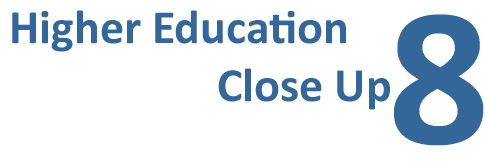Participatory parity and access to knowledge
James Garraway, Fundani Centre for Higher Education, Cape Peninsula University of Technology, Cape Town
Abstract
The aim of the research was to explore the use of participatory research methods in identifying enablements and constraints for students’ participation and learning in the higher education classroom. At the same time information was gathered about the nature of potentially transformative pedagogies which emerged from both students’ and staff’s diary entries. Participatory parity refers to the opportunity for students in higher education to interact on an equal footing (as much as is possible) with their peers and lecturers. The particular processes in the classroom which promote parity may involve the establishment of an environment where students can feel free to ask questions, respond to peers and engage in intellectual thought experiments without being censored. Another linked parity pedagogy would be allowing students to bring forward their own knowledge, ideas and concerns into the classroom. The research in this paper thus focuses on students perceptions, through regular reflective journal entries, on opportunities they experienced to participate in the classroom without fear of censure. Being able to interact on an equal footing is regarded as particularly important for education in South Africa, where inequalities continue to plague the field of higher and other levels of education. Teaching staff also keep parallel reflective journeys on opportunities they believe they provided to students. These entries are particularly interesting as they inform us around which sorts of topics staff promote participation and whether these can be said to be central guiding theories or simply procedural or peripheral knowledge. Participatory parity in the classroom is thus linked to the acquisition, potentially, of the powerful knowledge of the disciplines. The site of the search is the extended curriculum support programmes in a science course. The extended curriculum programmes are aimed at students who are identified as being most vulnerable to academic failure with the aim of improving their chances of success. Two classes of approximately 30 students each were asked to fill in once-weekly diaries on their experiences of classroom participation. The entries were guided by general questions which asked the students to describe what kinds of tasks they were engaged with during the week that promoted (or did not promote) participation, what they actually did in the classroom, why or whether this mattered to them and what they felt able to contribute to the task. (This research forms part of a larger NRF Participatory Parity and Transformative Pedagogy project, ERSA13103157237)
Keywords
Participatory Parity, Transformatory Pedagogy, Epistemic Access
Conference Organisers
Paul Trowler
Lancaster University, UK
Alice Jesmont
Lancaster University, UK
Malcolm Tight
Lancaster University, UK
Paul Ashwin
Lancaster University, UK
Murray Saunders
Lancaster University, UK
Chrissie Boughey
Rhodes University, South Africa
Suellen Shay
University of Cape Town, SA

